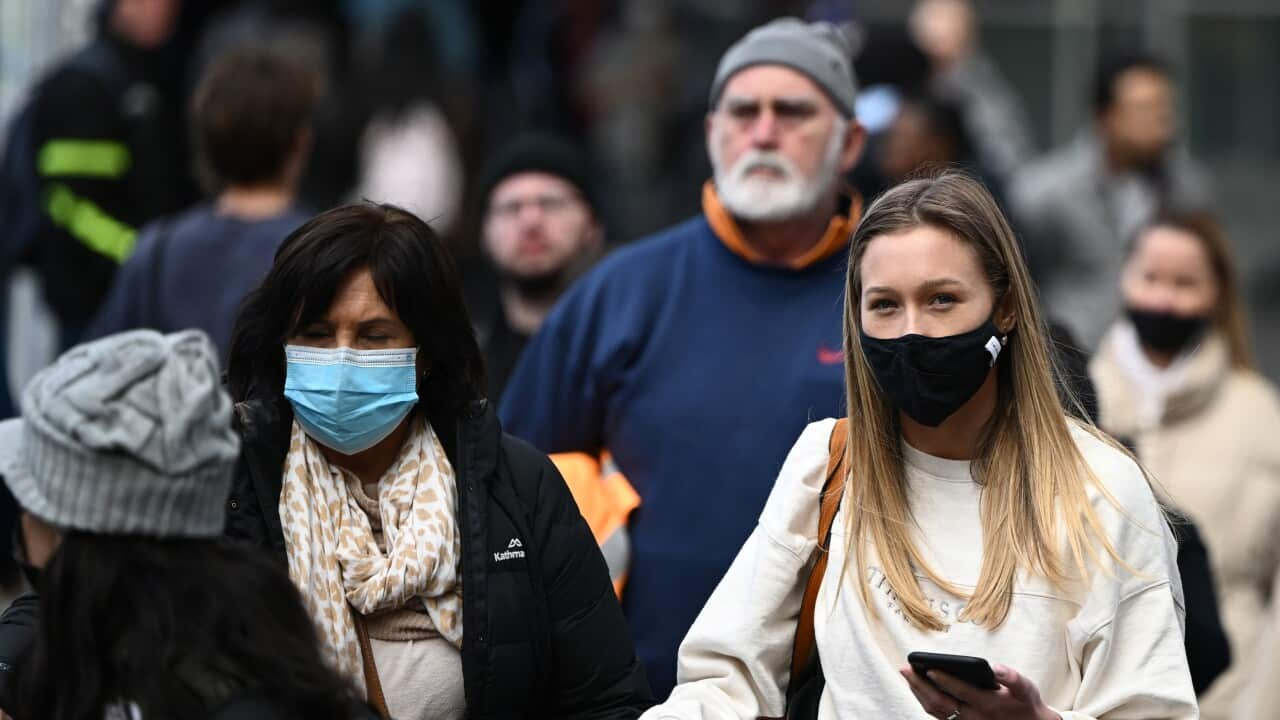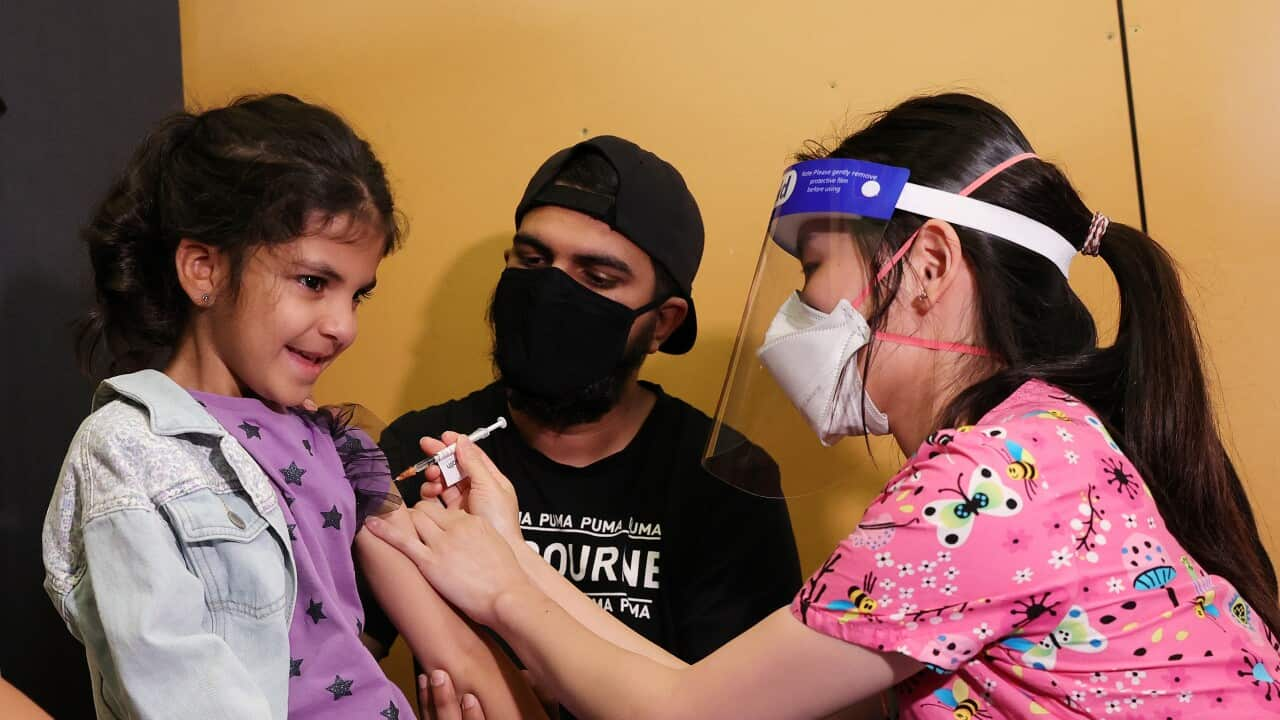Key Points
- As COVID-19 cases rise, people are being urged to get vaccinated, work from home and wear face masks.
- Here's the latest expert health advice to keep Australians safe.
As Australia battles through a significant rise in COVID-19 cases, authorities are renewing calls for people to follow expert health advice to keep the community safe.
Health Minister Mark Butler said there have been 300,000 cases in the past week but warned , with the peak of the BA.4 and BA.5 Omicron wave expected in August.
So, what do we do about it?
From wearing face masks and working from home to vaccines and antiviral drugs, here is the latest health advice that experts have strongly recommended in order to reduce hospitalisations and deaths across the country.
Masks
In a statement released on Tuesday, chief medical officer Paul Kelly issued clear advice on face masks: wear them "in crowded, indoor environments, including on public transport".
Prime Minister Anthony Albanese has repeated his opposition to mask mandates, arguing they are futile if they aren't effectively enforced.
"The truth is that if you have mandates, you've got to enforce them," he told reporters on Wednesday.
He said he has sufficient trust in Australians to act responsibly without being told they must wear a mask by their respective leaders.
"We do want to encourage that behaviour. People have been incredibly responsible during this pandemic. People have done it tough. People have looked after each other, and I'm confident that they'll continue to do so."
Some public health campaigns in favour of masks have gone viral, too. Notably, NSW chief health officer Kerry Chant has taken to TikTok with her peers to encourage mask-wearing indoors and in the workplace.
Consider working from home
Mr Kelly said employers should revisit their work health and safety frameworks when deciding what is in the best interests of their employees. That includes having them work from home where they can.
"[Employers] should consider the feasibility of some employees working from home, wearing masks in the workplace and support employees to take leave when sick," he said in a statement.
Mr Butler said it was "good practice" for all employers to encourage their staff to work from home, but it must be considered on a case-by-case basis.
"This should not be a decision employers take unilaterally. Employers should be engaging with their employees. That is the best approach to work, health and safety, and together coming to a view about the extent to which working from home arrangements on a very temporary basis could be put in place."
Mr Albanese said with "a bit of common sense applied", workplaces across the country will be able to strike the right balance.
Vaccines: three, four or five?
For those who are yet to get their third dose, authorities have warned that only having the first two vaccines is no longer enough to protect them against COVID-19.
More than half a million Australians have had a , but rates for the first booster are still lagging, with only 70.9 per cent of the population having received their third dose.
"The third dose rate just isn't shifting fast enough," Mr Butler told reporters in Canberra on Tuesday.
"There are still more than five million Australians for whom there's at least six months since they had their second dose of COVID-19 vaccine but have not yet had a third dose."
Right now, all Australians over the age of 30 are eligible to receive their fourth dose and, if you're over the age of 50, it is highly recommended.
For those who are severely immunocompromised, this will be their fifth vaccine dose.
Antivirals: can I take COVID-19 medication?
. These include those who are:
- Over the age of 70
- Over the age of 50 with two risk factors
- Over the age of 30 if you identify as Aboriginal or Torres Strait Islander with two risk factors
- Over the age of 18 who are moderately to severely immunocompromised
Risk factors a range of health conditions, such as those living with a disability, diabetes, heart problems, blood cancer, and more.
Antivirals should always be discussed with a person's doctor after testing positive for the virus and can be obtained with a prescription from a pharmacy.
With AAP.











